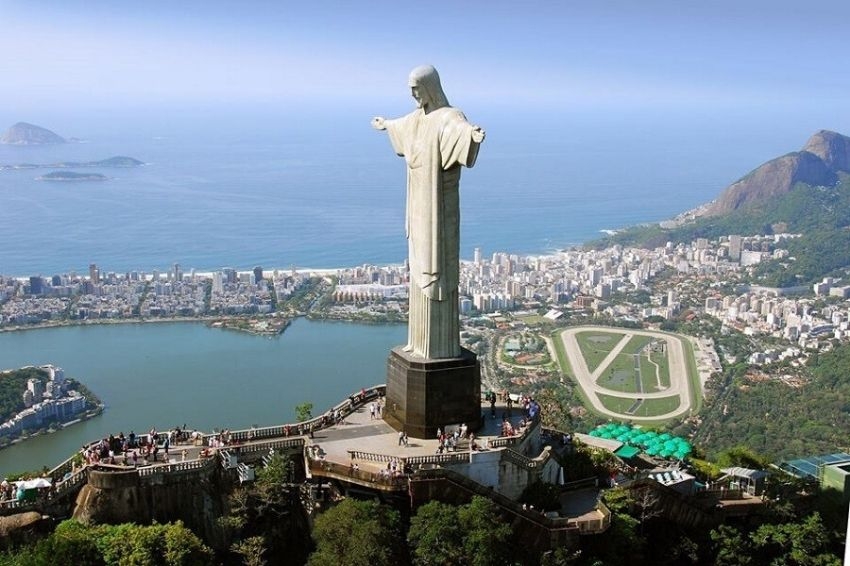Investors and energy consumers in the state of Rio de Janeiro who have photovoltaic systems in the DG (distributed generation) segment will be exempt from ICMS (Tax on the Circulation of Goods and Services).
A Law 8,922/2020, which establishes the exemption, was sanctioned by Governor Wilson Witzel and published by the Official State Gazette this Wednesday (1) and will be valid until December 31, 2022.
According to the measure, the exemption will be limited to consumers who have a distributed microgeneration of photovoltaic solar energy with an installed power of less than or equal to 75 kW or that have distributed minigeneration of photovoltaic solar electrical energy with an installed power of more than 75 kW and less than or equal to 5 MW, connected to the distribution network through installations of consumer units.
The law could bring incentives for even greater solar energy growth in the state of Rio de Janeiro, which is currently eighth in installed power in Brazil, attracting more investment in photovoltaic projects. Furthermore, it follows the example of the state with the highest installed power currently, Minas Gerais, which already has an ICMS exemption for DG.
For Bernardo Marangon, partner at Exata Energia and specialist in regulation and analysis of investments in the electricity sector, the measure will positively impact the market in the state. “This law is a big step for the state of Rio de Janeiro. It will certainly have a great impact on encouraging these types of projects in the state”, highlights Marangon.
“Considering the TUSD ICMS (Tariff for Use of the Distribution System), which was not compensated, the result of a project improves by around 34%, certainly a significant increase. This measure also opens up space for shared generation, which in other states, with the exception of Minas Gerais, do not compensate for the ICMS of TUSD and ICMS of TE (Energy Tariff)”, he adds.
According to the standard, the granting of the benefit corresponding to the energy injected into the distribution network added to the active energy credits originated, in the same month or in previous months, in the consumer unit itself or in another unit of the same ownership.
Currently, the tax exemption only applies to the TE portion, and would now be valid for the TUSD portion. The exemptions do not apply to availability costs, reactive energy, power demand, connection charges and any other amounts charged by the distributor.
Bárbara Rubim, vice-president of Distributed Generation of the Board of Directors of ABSOLAR (Brazilian Photovoltaic Solar Energy Association), clarifies that in order to take effect, the “law needs to be validated by Confaz (National Council for Financial Policy)”.
According to state deputy André Ceciliano, author of the proposal, the Treasury Department will have to regulate how accreditation will be carried out and how the incentive will be available. Finally, how the process will actually take place. “It is very important to create conditions so that Rio de Janeiro can invest in renewable energy and as there was already a law in this regard in Minas Gerais, we used the possibility of bonding, provided for in Confaz standards. This is an alternative to expand this type of investment in the state of Rio de Janeiro, in a competitive way”, he explains.
Minas Gerais
Deputy Ceciliano also highlights that the measure follows the example of Minas Gerais and encourages sustainable energy in the state of Rio de Janeiro. “It was verified that the state of Minas Gerais, through Decree 47,231/2017, granted this same type of exemption that we are proposing. Furthermore, the importance of solar energy and the microgeneration of photovoltaic energy is indisputable, as it is clean energy.”
Still according to the parliamentarian, this type of exemption is authorized by Federal Complementary Law 160/17 and by ICMS Agreement 190/17.
More projects and job creation
Specialist Bernardo Marangon states that now the two states are one step ahead of other regions of the country. “The states of Minas Gerais and Rio de Janeiro are ahead of the others, as the loss of revenue related to credit compensation is very low in relation to the revenue that comes from other sources related to the construction of the projects”.
Marangon also highlights the positive impact on the job market. “Another important point is the generation of jobs and investment in the state. We will see a significant growth in the number of projects in Rio de Janeiro”, he concludes.















